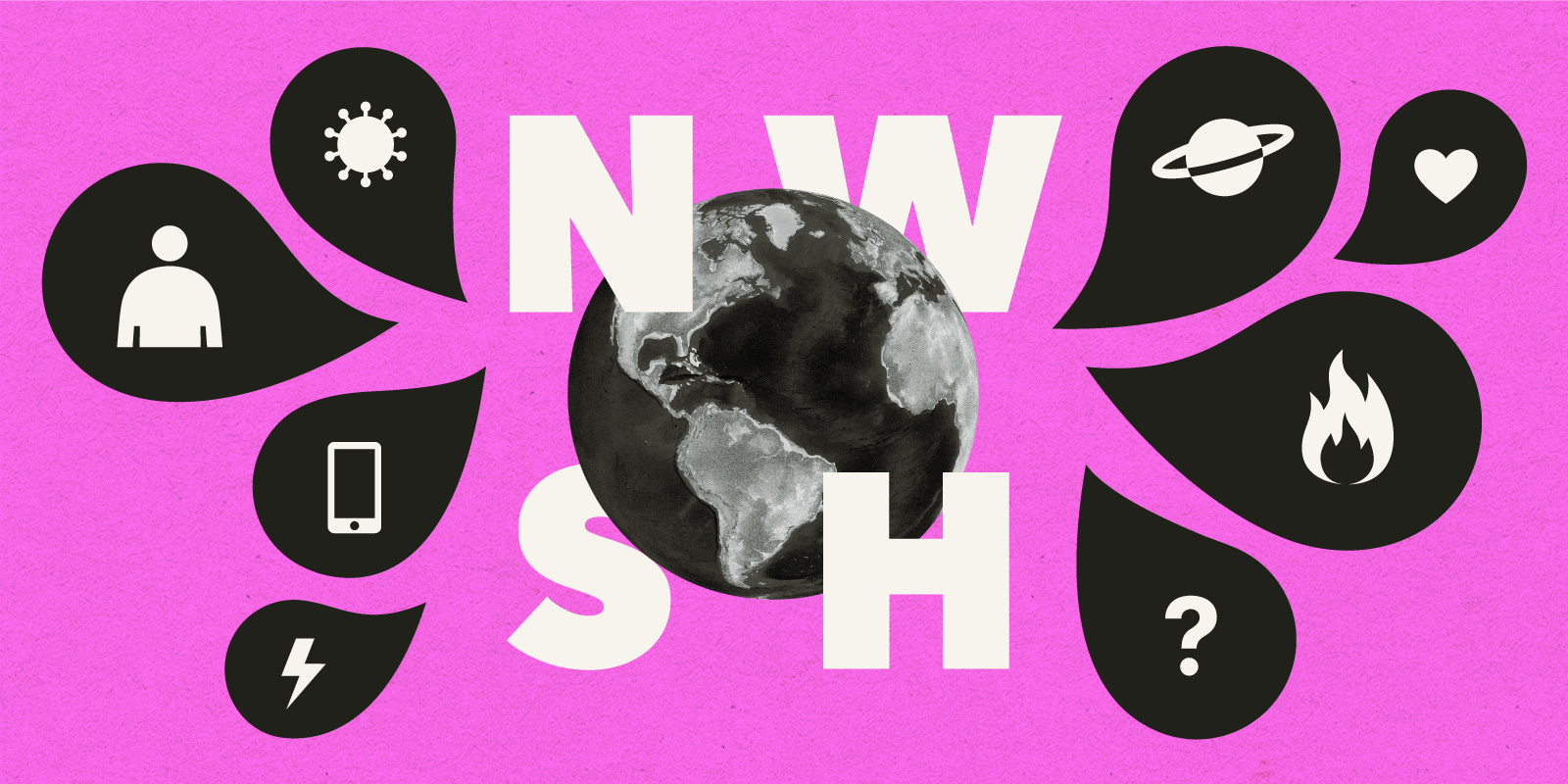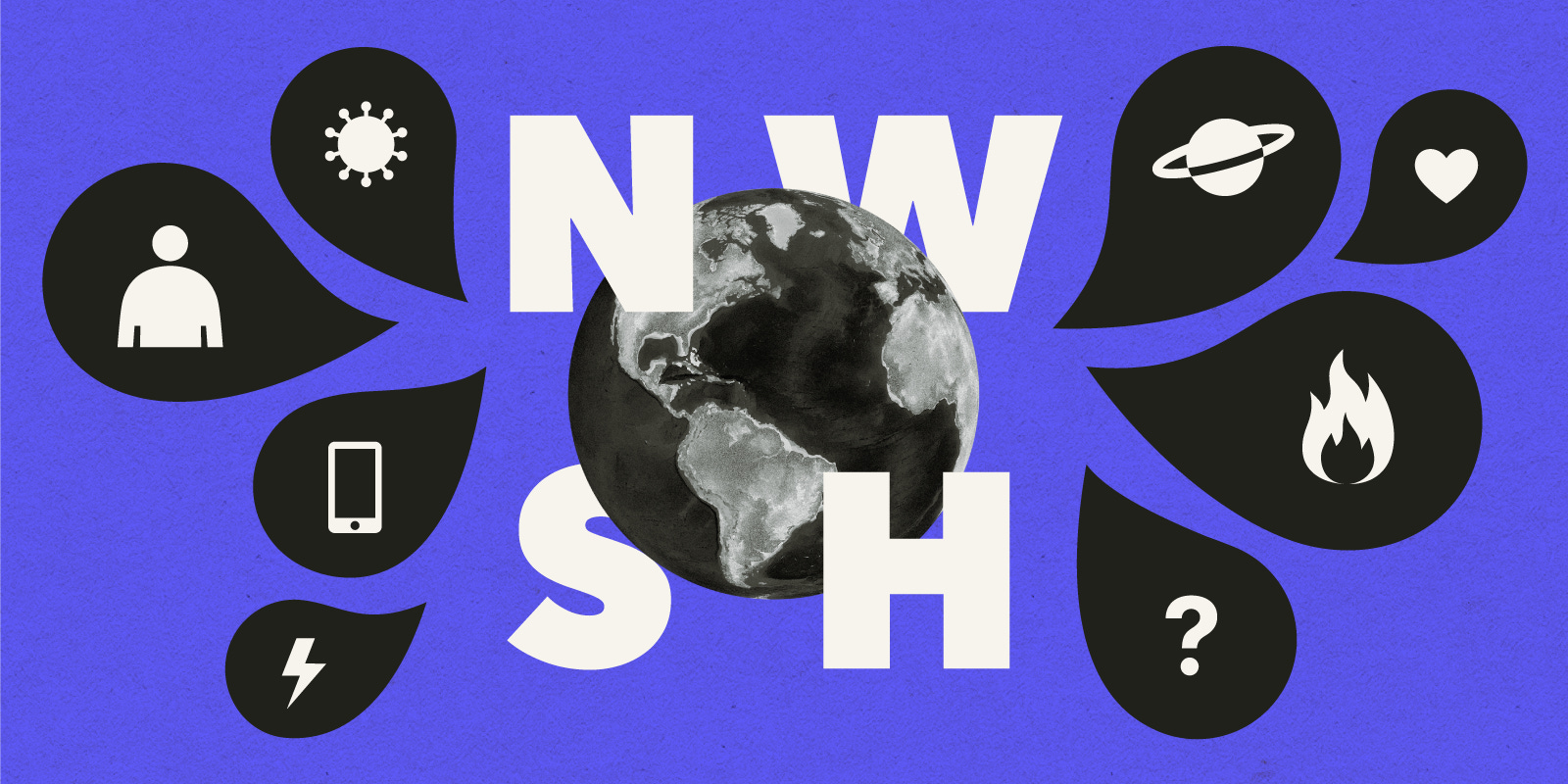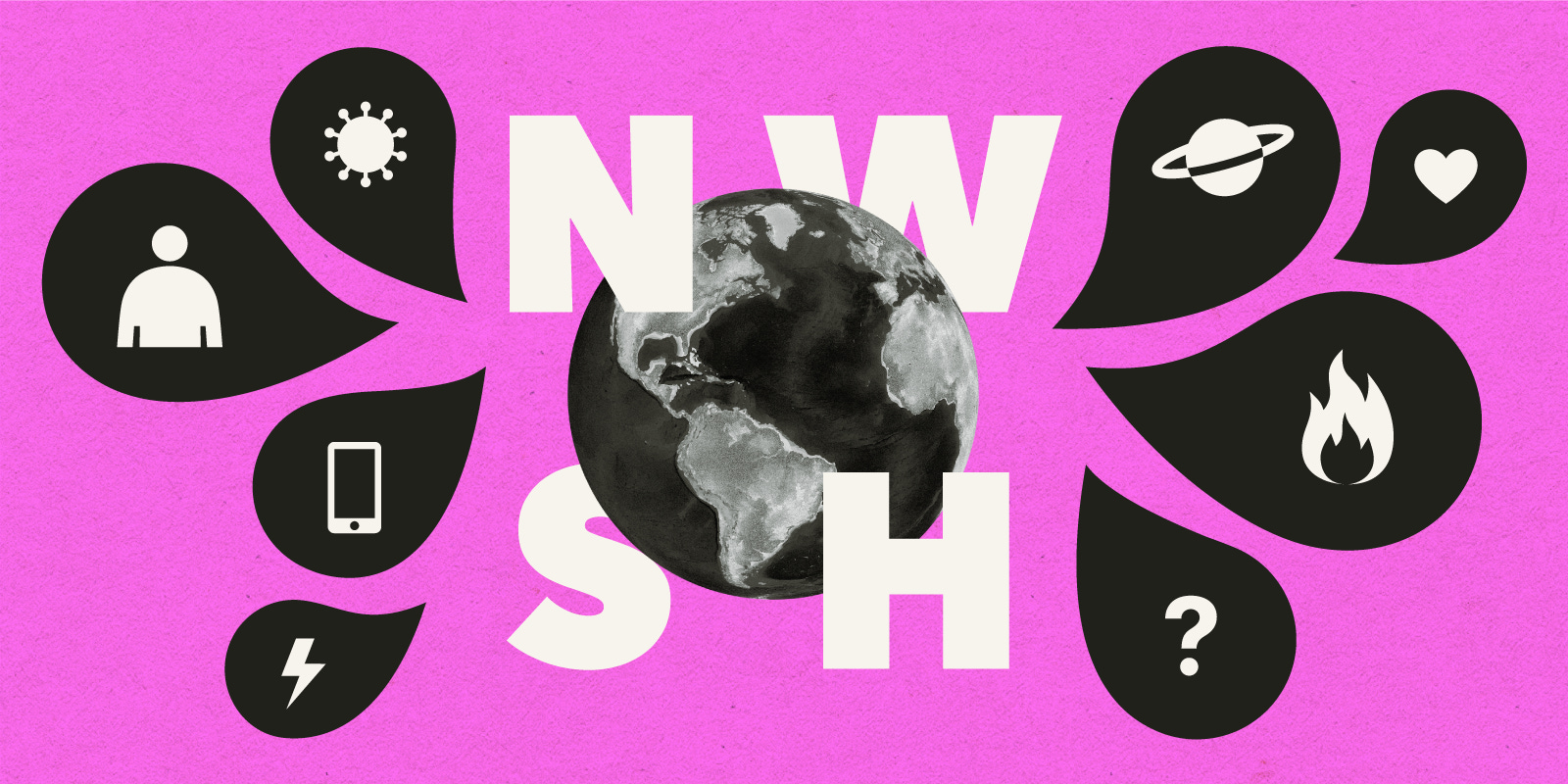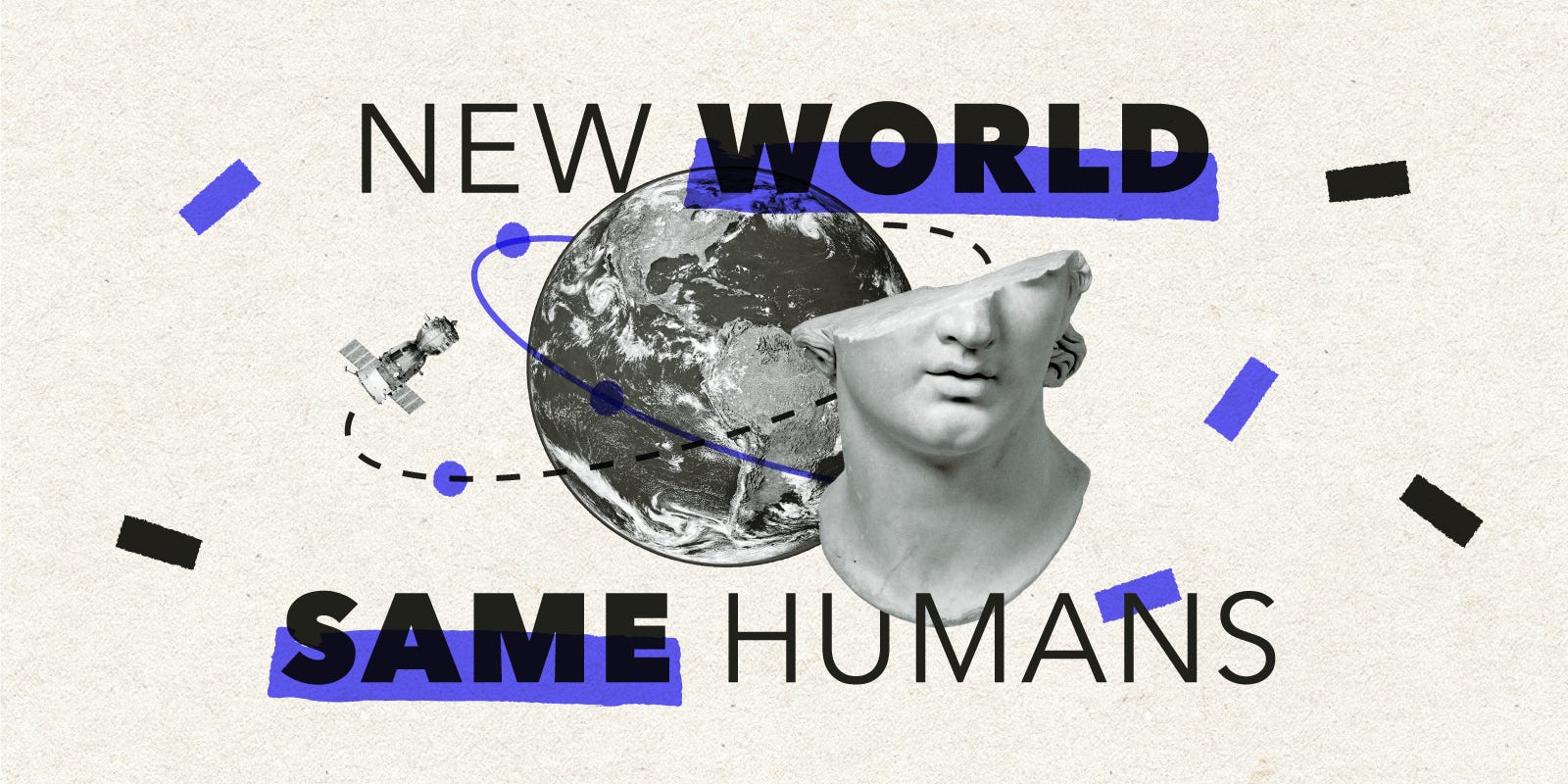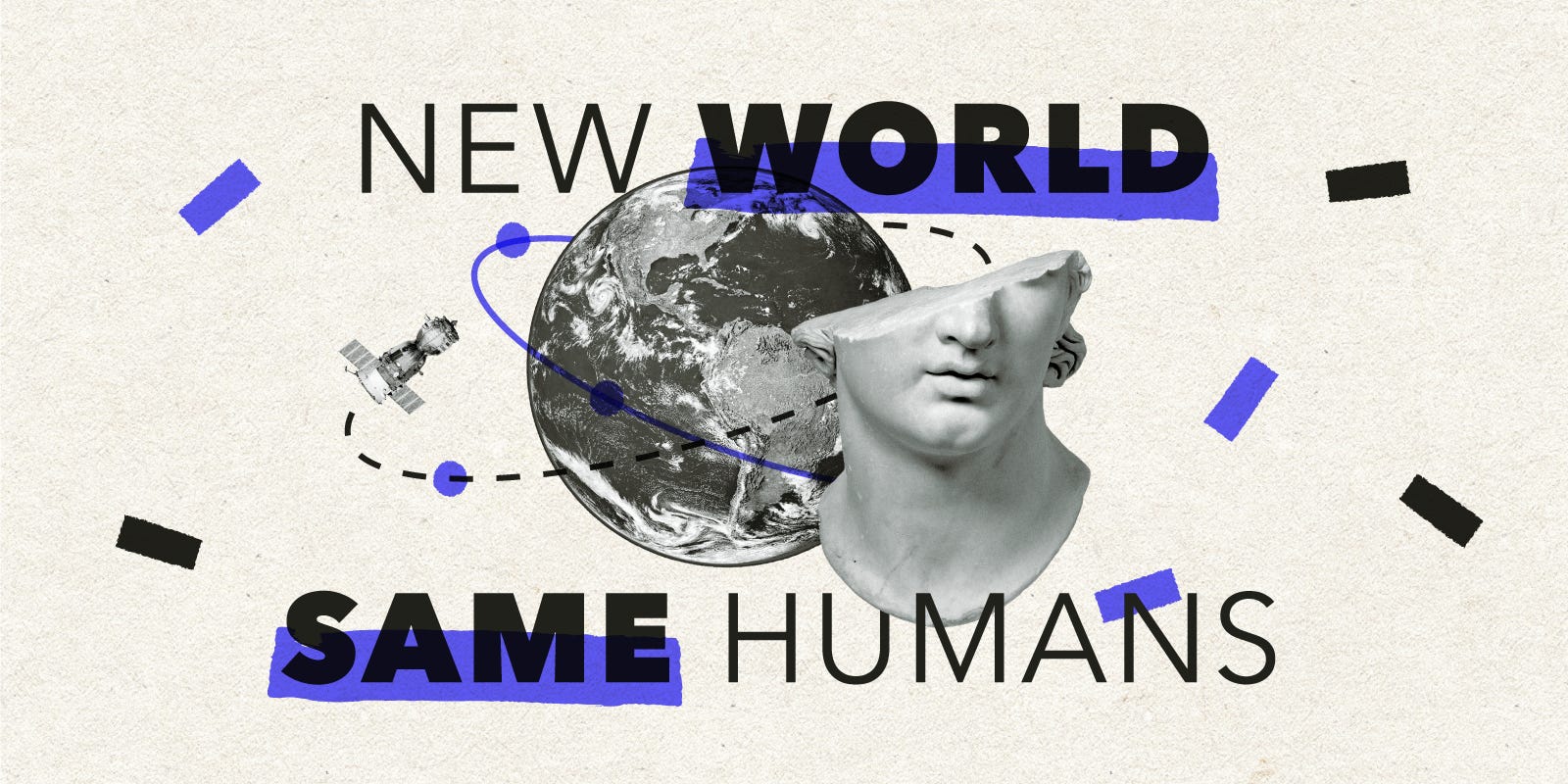New Week #111
Description
Welcome to the mid-week update from New World Same Humans, a newsletter on trends, technology, and society by David Mattin.
If you’re reading this and haven’t yet subscribed, join 24,000+ curious souls on a journey to build a better future 🚀🔮
To Begin
I was away for most of this week, and that means a truncated instalment of the newsletter.
But that gives me a chance to dive a little deeper than usual into a single story. Which works out well, because this week saw the first shots fired in what is set to become an epic battle for the future.
Let’s get into it.
🔍 In search of answers
This week, three glimpses of the revolution taking place via large language models — in particular, into its implications for online search.
Microsoft announced a new version of its search engine, Bing, which it billed an ‘AI copilot for the web’.
The all-new Bing is powered by OpenAI’s GPT-3.5; its most notable new feature is a ChatGPT-style conversational capability, which responds with narrative answers to enquiries such as help me find a pet or I need to write a pop music trivia quiz.
Microsoft have long funded OpenAI, and announced a new $10 billion investment in January.
Currently only a limited preview version of the new Bing is available; still, via some pre-set enquiries it offers a taste of the way the platform integrates ChatGPT with traditional search:
Meanwhile, Google announced the coming release of their own AI conversational agent.
The tool, Bard, is built on Google’s large language model LaMDA, and in a blog post Google announced that it was being released to a small cadre of expert testers this week in anticipation of a broader release soon.
But the announcement quickly hit a snag: observers pointed out that in a promotional video to support the announcement Bard incorrectly reported that the James Webb telescope took the first pictures of a planet outside our solar system. It didn’t.
What’s more, at the launch event on Wednesday morning Google said nothing about how the chat tool will be integrated into its broader search service.
The market response? Shares in Google’s parent company, Alphabet, fell by 9% — wiping $100 billion off the market value.
Finally, cunning users found a way to subvert the content moderation policies imposed on by OpenAI on ChatGPT; those policies are intended to stop the chatbot generating responses some consider harmful or offensive.
Check out this Reddit thread for the full story of this method and its history. But essentially it entails writing a prompt that asks ChatGPT to emulate another AI called DAN — it stands for Do Anything Now — which is not subject to any content moderation.
That’s it: you just ask. That done, ChatGPT-DAN will go wild at your behest, spewing out hateful statements and generating conspiracy theories to order. Here is a relatively mild taste:
It’s everything OpenAI don’t want associated with their new superstar creation. They are no doubt working hard, as I write, to patch up this glitch.
⚡ NWSH Take:
Both Microsoft and Google are keen to stress how responsible they’re being when it comes to generative AI. We’re putting safeguards around this technology, they keep telling us. We’re releasing it gradually, so we can monitor the impacts.
But don’t let all the corporate ethics-speak fool you: via the revolutionary power of LLMs, these two tech giants are now at war for the future of search. Each is racing to outdo the other, and they’re not going to let up.
At stake? One of the biggest prizes in existence: win search, and you get to be the lens via which humanity views its collective knowledge and shared cultural history. Achieve that, and you can shape and profit from countless online behaviours and innovations built on top of your platform. Google built a $1 trillion business on these truths.
Now, Microsoft is coming for that business. Even the limited taste of new Bing currently available makes clear the way that high-quality conversational AI can be an era-defining phase shift for search. It’s a whole new way of communing with knowledge.
*
Google’s lead in search is currently overwhelming: it has around 84% of the market, while Microsoft’s Bing is in distant second place with 9%.
But I wonder how many inside Google right now are recalling the story of another tech giant: Nokia. Back in 1998 the Finnish company commanded 40% of the global mobile phone market. They’d helped pioneer the first-wave mobile revolution, and their domination seemed unbreakable. Then came 2007, and the iPhone.
There’s much about that story that is unrepeatable. This isn’t the late 90s; Google isn’t Nokia. But it’s a reminder that the seemingly unbeatable can be beaten. And, more concerningly for Google, for everyday users the arrival of ChatGPT carries with it echoes of the arrival of the iPhone 16 years ago: oh s**t, I’ve never used anything like this before. This feels like it’s from the future.
In the announcement of Bard, it’s hard not to hear whispers of an organisation somewhat spooked by what’s happening.
And now it’s clear that the markets, too, believe that everything is up for the taking. A 9% share price dive all because Bard spat out a factoid; it seems a mad over-reaction. But if it helps drive a narrative that Microsoft are winning the generative search war, it may become a self-fulfilling prophesy.
But that war is still in its early days. Sure, Bard made an error on the James Webb telescope — though now an argument rages over whether it was, in fact, wrong — but ChatGPT is prone to produce factual inaccuracies and even errors on basic arithmetic.
These problems are being solved; via iterative releases, ChatGPT is already more factually reliable than it was a month ago.
There’s a long, long way to go. Search is about to be ripped up and put back together again, and it’s going to be fascinating.
*
But there are issues in play, here, that go even deeper.
We’re still at the start of any attempt to understand what these LLMs really are, how we should relate to them, and how they’ll change our lives.
One angle on all that? I’ve argued before that LLMs such as GPT 3.5 and LaMDA are best understood as a new instantiation of the human hivemind. These AIs can take in everything we’ve got — an appreciable amount of all the text on the internet, say — and create novel syntheses and remixes of their own. They are less a straightforward digital tool, and more a window — onto our shared intellectual and cultural history, on to the collective consciousness.
Seen this way, we may come to view generative AI as a shift comparable to others that profoundly changed our relationship with knowledge. The arrival of the printing press. The invention of the internet.
These are bold claims. They deserve all the scepticism they will attract. All we can try to do is make sense of what’s happening in real-time.
I’ll be publishing a short note soon that seeks to dive further into all this. In particular, into why using ChatGPT feels such a particular and new kind of experience.
A sneak peak: I think it’s to do with the way human thought itself is, by its nature, a dialogue. That is, with the way thought is a form of talking to ourselves.
🗓️ Also this week
🌍 Climate activists are suing Shell’s board of directors over global heating. Environmental law charity ClimateEarth say Shell’s 11 directors have breached their legal responsibility under the UK Companies Act because Shell’s climate strategy does not align with the Paris Agreement.
🏰 Disney says it will lay off 7,000 employees as it struggles with a slowdown in subscriptions to its streaming service. Around 46 million people subscribe to Disney+. But the company’s direct-to-consumer division, which includes the streaming service, reported an operating loss of $1.1 billion across the last quarter of 2022.
🙊 Voice actors say they’re facing new contracts that ask them to sign the rights of their voice away to AI. Last week I wrote about ElevenLabs, the UK startup behi

